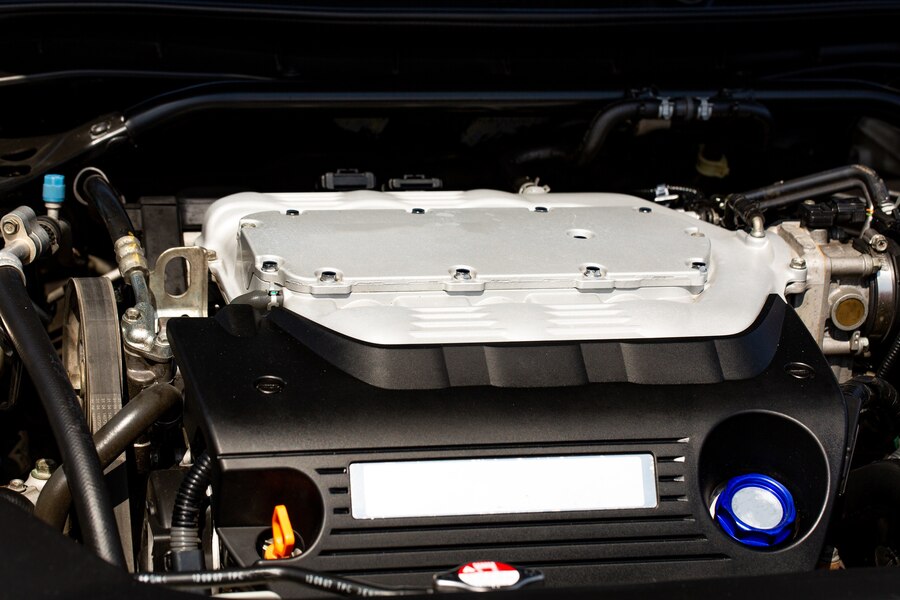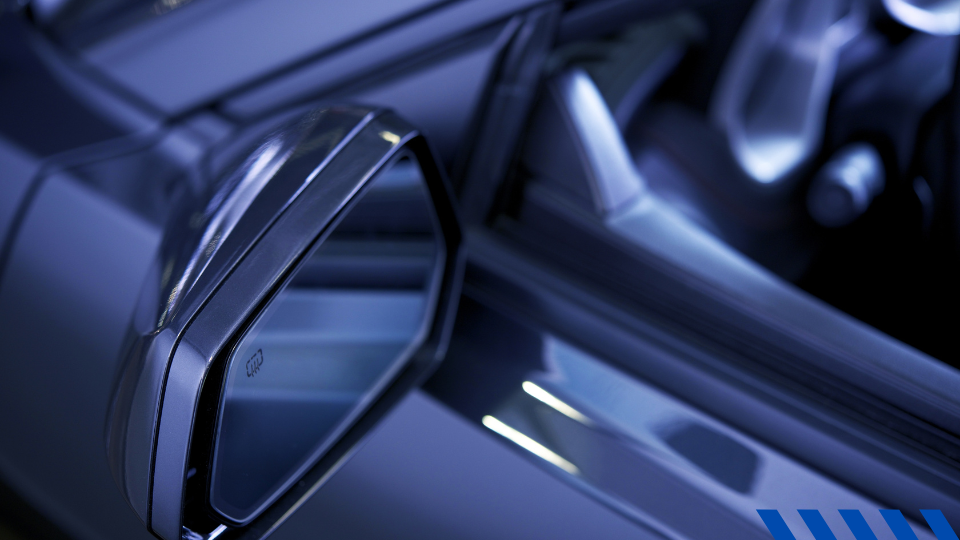The Range Rover Evoque, since its debut in 2011, has been a symbol of luxury, style, and off-road capability. As one of the most popular models in Land Rover’s lineup, the Evoque has attracted a diverse audience, from urban dwellers to adventure seekers. Central to the Evoque’s appeal is its range of engine options, which provide a balance of performance, efficiency, and versatility. This article delves into the various available in the Range Rover Evoque Engine Size, exploring their specifications, performance characteristics, and how they cater to different driving needs.
The Evolution of the Range Rover Evoque’s Engine Lineup
First Generation (2011-2018)
When the Range Rover Evoque was first introduced, it marked a significant departure from traditional Range Rover design. Its compact size and sleek, coupe-like silhouette were aimed at a younger, more urban demographic. Alongside its distinctive styling, the Evoque also offered a range of engines that combined efficiency with the capability expected from a Land Rover.
2.0-Liter Turbocharged Petrol Engine
The most prominent engine in the first-generation Evoque was the 2.0-liter turbocharged petrol engine. This engine, part of Ford’s EcoBoost family, was known for its balance of power and fuel efficiency. It produced around 240 horsepower and 250 lb-ft of torque, providing the Evoque with a lively and responsive performance both in city driving and on the highway. The turbocharged nature of the engine ensured that the Evoque could deliver strong acceleration while maintaining respectable fuel economy figures.
2.2-Liter Turbocharged Diesel Engine
For those seeking better fuel economy, especially for longer journeys or off-road adventures, the 2.2-liter turbocharged diesel engine was a popular choice. Available in two power outputs—148 horsepower and 187 horsepower—this engine was praised for its torque, which peaked at 310 lb-ft. This made the diesel Evoque particularly adept at handling rough terrains and towing, further enhancing its versatility as a compact SUV. The diesel engine also offered excellent fuel efficiency, making it an attractive option for European markets where diesel vehicles are more prevalent.
Second Generation (2019-Present)
The second generation of the Range Rover Engine, launched in 2019, brought with it significant advancements in technology, design, and engine options. Land Rover introduced a new range of Ingenium engines, which were designed in-house and focused on improving efficiency, reducing emissions, and delivering robust performance.
2.0-Liter Ingenium Petrol Engine
The 2.0-liter Ingenium petrol engine has become a staple in the second-generation Evoque lineup. Available in various power outputs, ranging from 200 to 300 horsepower, this engine offers a flexible driving experience that caters to different performance needs. The base 200-horsepower version is ideal for daily commuting and urban driving, providing smooth acceleration and a refined ride. For those seeking more power, the 300-horsepower version delivers a sportier performance, with a 0-60 mph time of around 6.5 seconds, making it one of the quickest options in the Evoque range.
2.0-Liter Ingenium Diesel Engine
The Ingenium diesel engines continue to be a key offering in the Evoque lineup, especially in markets where diesel is preferred. These engines are available in multiple power outputs, ranging from 150 to 240 horsepower. The 150-horsepower variant is perfect for those prioritizing fuel efficiency and lower running costs, while the 240-horsepower version offers a more dynamic performance, ideal for those who frequently drive in challenging conditions or require additional towing capacity. The diesel engines also feature mild-hybrid technology, which further enhances fuel efficiency by recuperating energy during braking and deceleration.
1.5-Liter Ingenium Plug-in Hybrid (PHEV)
One of the most significant additions to the second-generation Evoque lineup is the introduction of the 1.5-liter Ingenium plug-in hybrid engine. This powertrain combines a 1.5-liter three-cylinder petrol engine with an electric motor, delivering a combined output of 309 horsepower. The hybrid system allows the Evoque to travel up to 34 miles on electric power alone, making it an excellent choice for urban drivers who want to minimize their carbon footprint. The PHEV also offers impressive fuel efficiency, with the ability to achieve over 200 mpg when driven in electric mode and fully charged.
Understanding Engine Size and Its Impact on Performance
What Does Engine Size Mean?
Engine size, often referred to as engine displacement, is a measure of the total volume of all the cylinders in an engine. It is typically expressed in liters (L) and represents the amount of air and fuel mixture an engine can draw in during one complete cycle of all the cylinders. For example, a 2.0-liter engine has a total cylinder capacity of 2,000 cubic centimeters (cc).
Engine size plays a crucial role in determining an engine’s power output, torque, and overall performance. Larger engines generally produce more power and torque, making them suitable for high-performance vehicles or those that need to tow heavy loads. However, larger engines also tend to be less fuel-efficient, as they consume more fuel to generate that power.
Performance Characteristics of Different Engine Sizes
2.0-Liter Engines
The 2.0-liter engines in the Range Rover Evoque strike a balance between performance and efficiency. These engines are capable of producing ample power for both city driving and highway cruising, making them versatile options for a wide range of driving conditions. The turbocharged variants offer strong acceleration and responsiveness, making the Evoque feel lively and dynamic. However, the fuel efficiency of these engines can vary depending on driving habits and conditions, with turbocharged engines typically consuming more fuel under heavy acceleration.
1.5-Liter Engines
The 1.5-liter engine found in the plug-in hybrid Evoque is designed with efficiency in mind. Despite its smaller size, this engine, when combined with the electric motor, delivers impressive performance that rivals larger engines. The electric motor provides instant torque, which enhances acceleration and makes the Evoque feel quick off the line. Additionally, the ability to drive in electric-only mode means that the 1.5-liter PHEV can significantly reduce fuel consumption and emissions, especially in urban environments.
Choosing the Right Engine for Your Range Rover Evoque
Considerations for Urban Drivers
For urban drivers who spend most of their time navigating city streets, the 1.5-liter plug-in hybrid engine is an excellent choice. Its electric-only driving capability allows for zero-emission travel over short distances, making it ideal for daily commutes and running errands around town. The compact size of the engine also contributes to a smoother and quieter driving experience, which is particularly beneficial in stop-and-go traffic. Additionally, the hybrid powertrain offers the flexibility to switch to petrol power when needed, ensuring that longer journeys can be completed without range anxiety.
Considerations for Highway and Long-Distance Driving
Drivers who frequently travel long distances or spend a significant amount of time on highways may prefer the 2.0-liter petrol or diesel engines. The higher power output of these engines ensures that the Evoque can maintain steady speeds on the highway, with plenty of power in reserve for overtaking or climbing steep inclines. The diesel variants, in particular, are well-suited for long-distance driving, thanks to their superior fuel efficiency and extended range. Additionally, the mild-hybrid technology in the diesel engines helps to improve fuel economy, reducing the need for frequent refueling on long trips.
Considerations for Off-Road Enthusiasts
For those who plan to take their Range Rover Evoque off the beaten path, the 2.0-liter diesel engines are a top choice. The high torque output of these engines provides the low-end grunt needed to tackle rough terrains, steep inclines, and slippery surfaces. The diesel engines also offer better fuel efficiency than their petrol counterparts, which is particularly advantageous when venturing into remote areas where refueling options may be limited. The robust construction of these engines, combined with the Evoque’s advanced off-road capabilities, ensures that the vehicle can handle the demands of off-road adventures with ease.
The Future of Range Rover Evoque’s Engine Lineup
Electrification and Hybrid Technology
As the automotive industry continues to shift towards electrification, the future of the Range Rover Evoque’s engine lineup will likely see an increased focus on hybrid and electric powertrains. The introduction of the plug-in hybrid variant is a clear indication of Land Rover’s commitment to reducing emissions and improving fuel efficiency across its lineup. In the coming years, we can expect to see more advanced hybrid systems, as well as the potential introduction of a fully electric Evoque, as part of Land Rover’s broader strategy to electrify its entire range by the end of the decade.
Continued Development of Ingenium Engines
Land Rover’s Ingenium engine family represents the brand’s dedication to developing efficient, high-performance powertrains. As emissions regulations become stricter and consumer demand for fuel-efficient vehicles grows, Land Rover will likely continue to refine and improve its Ingenium engines. This could include advancements in turbocharging technology, the integration of more sophisticated hybrid systems, and the development of alternative fuel engines, such as hydrogen-powered options.
Balancing Performance and Sustainability
The challenge for Land Rover in the future will be to balance the performance and luxury that the Range Rover Evoque is known for with the need for greater sustainability. This will involve not only improving the efficiency of the engines themselves but also adopting more sustainable manufacturing practices, using eco-friendly materials, and minimizing the environmental impact of the production process. By focusing on these areas, Land Rover can ensure that the Evoque remains a desirable and competitive option in the luxury SUV market, while also meeting the demands of a more environmentally conscious consumer base.




